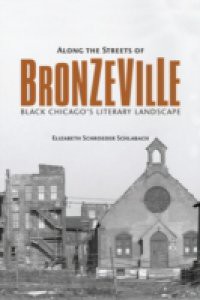Along the Streets of Bronzeville examines the flowering of African American creativity, activism, and scholarship in the South Side Chicago district known as Bronzeville during the period between the Harlem Renaissance in the 1920s and the Black Arts Movement of the 1960s. Poverty stricken, segregated, and bursting at the seams with migrants, Bronzeville was the community that provided inspiration, training, and work for an entire generation of diversely talented African American authors and artists who came of age during the years between the two world wars. In this significant recovery project, Elizabeth Schlabach investigates the institutions and streetscapes of Black Chicago that fueled an entire literary and artistic movement. She argues that African American authors and artists--such as Gwendolyn Brooks, Richard Wright, Langston Hughes, painter Archibald Motley, and many others--viewed and presented black reality from a specific geographic vantage point: the view along the streets of Bronzeville. Schlabach explores how the particular rhythms and scenes of daily life in Bronzeville locations, such as the State Street Stroll district or the bustling intersection of 47th Street and South Parkway, figured into the creative works and experiences of the artists and writers of the Black Chicago Renaissance. Providing a virtual tour South Side African American urban life at street level, Along the Streets of Bronzeville charts the complex interplay and intersection of race, geography, and cultural criticism during the Black Chicago Renaissance's rise and fall.

